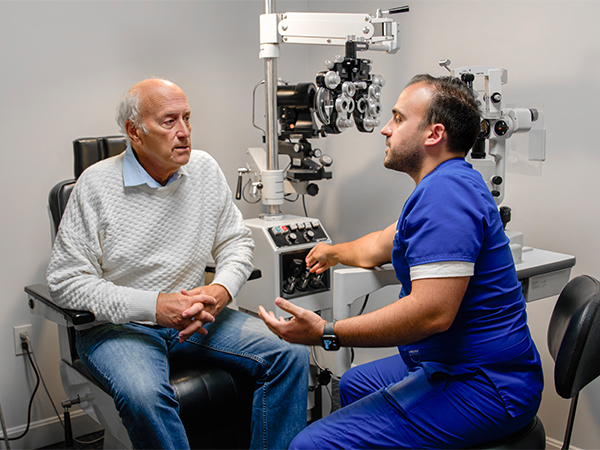
Macular degeneration is one of the leading causes of vision loss among adults over 50. It affects the macula - the central part of the retina responsible for sharp, detailed vision. There are two main types of macular degeneration: dry (atrophic) and wet (neovascular). While both impact central vision, they differ significantly in how they develop, progress, and are treated.
What Is Dry Macular Degeneration?
Dry macular degeneration is the most common form, accounting for about 85–90% of all cases. It occurs when the light-sensitive cells in the macula gradually break down over time. This leads to the slow blurring of central vision and difficulty recognizing faces or reading small print.
Key characteristics of dry macular degeneration include:
• Slow progression over several years
• Accumulation of yellow deposits called drusen under the retina
• Gradual loss of central vision
• Often affects both eyes, though one may progress faster
While dry macular degeneration does not typically cause complete blindness, it can significantly affect daily activities and overall quality of life.
What Is Wet Macular Degeneration?
Wet macular degeneration is less common but more severe. It occurs when abnormal blood vessels form beneath the retina and leak fluid or blood into the macula. This leakage damages the retinal cells and leads to rapid and significant vision loss.
Key characteristics of wet macular degeneration include:
• Sudden or rapid vision distortion
• Straight lines appearing wavy or bent
• Dark or blank spots in the center of vision
• Requires urgent medical attention to prevent further damage
Wet macular degeneration often begins as the dry form and progresses if left untreated.
The Importance of Routine Eye Exams
Early detection is crucial for managing macular degeneration. Because symptoms can be subtle, regular eye exams allow your optometrist to identify signs before vision loss occurs. These exams include retinal imaging and other advanced diagnostic tools that can detect macular changes even before symptoms appear. Annual exams are particularly important for individuals over 50, those with a family history of macular degeneration, and anyone who smokes or has cardiovascular risk factors.
Stay Ahead of Macular Degeneration at WeCare Eye Group
Both dry and wet macular degeneration can significantly impact your vision, but early diagnosis and management can make a meaningful difference. While dry macular degeneration progresses gradually, wet macular degeneration can cause sudden vision loss - making regular eye exams essential for protecting your sight.
Schedule a comprehensive eye exam with WeCare Eye Group to safeguard your sight and catch early signs of macular degeneration. We’re here to serve you at multiple locations across Pennsylvania and Rhode Island. Contact the office nearest you to book your appointment today:
• Ardmore Eye Care - Ardmore, PA | (610) 624-2151
• WeCare Eyes and Skin MedSpa - Providence, RI | (401) 331-7850
• Cranston Eye and Optical - Cranston, RI | (401) 942-9933
• Westminster Eye Care Associates - Providence, RI | (401) 331-7850
• Smithfield Eye and Optical - Greenville, RI | (401) 949-7300
• College Hill Eye and Optical - Providence, RI | (401) 831-2015
• North Providence Eye and Optical - North Providence, RI | (401) 353-2010











